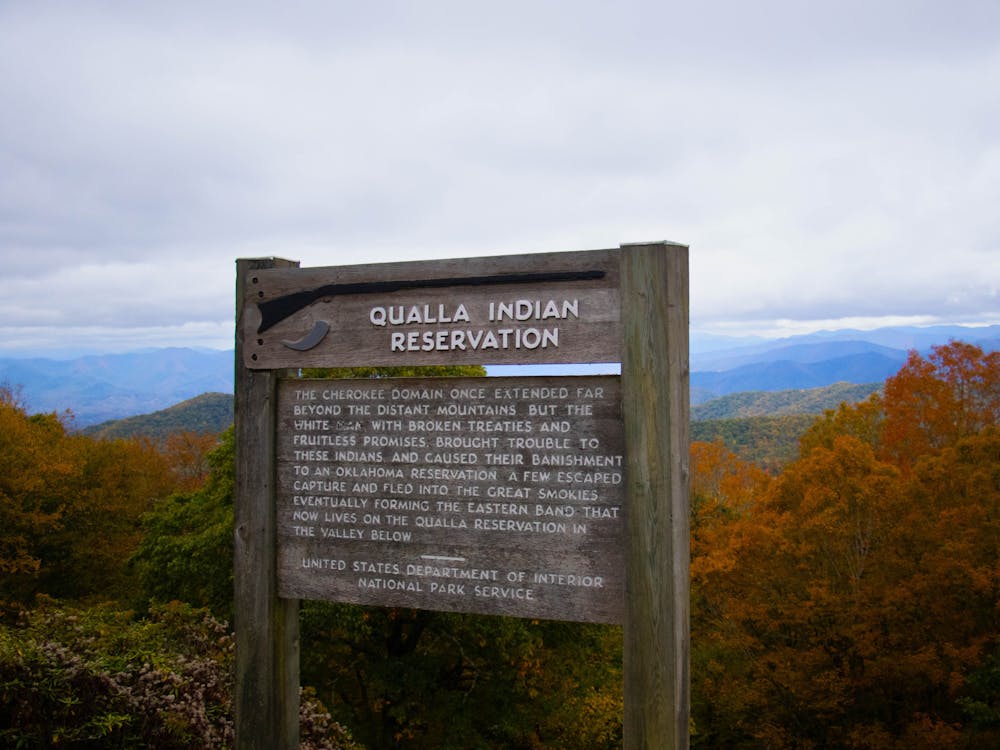A Cherokee nation marijuana retailer will begin selling cannabis products to anyone over the age of 21 on Sept. 7, following a three year effort to legalize marijuana for the tribe.
On April 20, the Great Smoky Cannabis Company — North Carolina’s first marijuana dispensary — began selling medical marijuana to anyone 21 or older with a tribal medical marijuana card or a valid out-of-state medical marijuana card.
After the tribal council passed an ordinance legalizing recreational use July 4, the dispensary expanded access to include recreational marijuana for adult members of any federally recognized tribe.
The Eastern Band of the Cherokee tribe resides in the Qualla Boundary in the western part of North Carolina. The path to legalizing marijuana within the territory began in 2021 when the tribe, which is federally recognized and considered a sovereign nation, decriminalized the possession of marijuana.
In September 2023, the tribal council voted to legalize marijuana and began the development of a dispensary, which was only open for a few weeks until the tribal council passed an ordinance legalizing recreational use.
Qualla Enterprises, the tribe’s marijuana supplier, expects the dispensary could generate over $385 million in revenue in its first year, according to 2023 estimates by Qualla Enterprises.
While the Cherokee nation has swiftly legalized marijuana and seems to be reaping the benefits, N.C. lawmakers are skeptical about this change and expressed hesitancy to adopt similar changes in the state.
Jenifer Hamil-Luker, associate professor of the practice of sociology, explained that the opening of the dispensary is unlikely to change the minds of N.C. lawmakers who are “staunchly opposed” to all forms of marijuana use.
“Because of gerrymandering, NC legislators do not proportionally reflect the population or will of North Carolinians,” Hamil-Luker wrote in an email to The Chronicle. “N.C. lawmakers can pass legislation at odds with what most citizens want.”
Hamil-Luker added that a February 2024 poll from Meredith College showed 78% of N.C. voters approve the legalization of medical marijuana.
While the N.C. Senate passed a bill to legalize medical marijuana, Hamil-Luker noted that it is unlikely for Tim Moore, Republican speaker of the N.C. House, to bring the bill to a vote due to insufficient Republican support.
Both Republican senators from N.C. released statements with concerns about the legalization of marijuana within Cherokee territory.
“As our nation is facing an unprecedented drug crisis that is harming our communities, it is vital to learn what measures your departments and agencies are taking to uphold current federal and state laws,” senators Thom Tillis and Ted Budd wrote in a letter to a number of U.S. officials, including Attorney General Merrick Garland and Drug Enforcement Administration Administrator Anne Milgram. “… In particular, we have the responsibility to ensure our youth are shielded from untested marijuana products being produced and sold by Qualla Enterprise LLC.”
In contrast to the Senator’s concerns, Hamil-Luker expressed that Qualla Enterprises “is informed by agricultural, business and medical experts” and is “slowly and thoughtfully” conducting business.
“Throughout U.S. history, powerful people have used drug laws to stigmatize and control marginalized groups,” Hamil-Luker wrote. “N.C. state laws, however, do not have jurisdiction over the sovereign nation of the Eastern Band of Cherokee Indians.”



